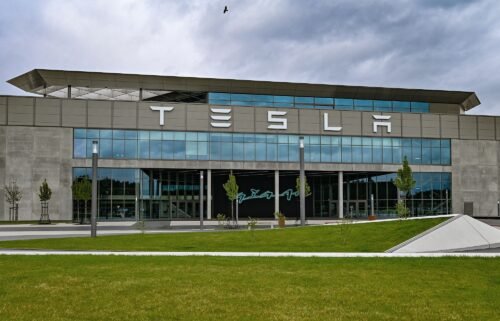Google launches Gemini, its most-advanced AI model yet, as it races to compete with ChatGPT
(CNN) — Google on Wednesday launched its most ambitious effort yet to compete in the rapidly growing field of generative artificial intelligence, launching an AI model known as Gemini that’s designed to compete with the likes of OpenAI’s GPT models and supercharge everything from Google’s consumer apps to Android smartphones.
The scope of Google’s ambitions were reflected in the company’s announcement, which introduced Gemini as the company’s “largest and most capable AI model” and declared a “Gemini era” that foresees the tech giant’s model being used in every setting, from big companies to consumer devices such as the Google Pixel 8 Pro.
Unlike existing AI models that typically deal with only one type of user prompt, such as exclusively images or text, Gemini was built to be “multimodal,” Google said. This means it accepts inputs that include multiple types of media, combining text, images, audio, video and programming code.
“This new era of models represents one of the biggest science and engineering efforts we’ve undertaken as a company,” said Google CEO Sundar Pichai in a blog post.
Google’s proprietary AI chatbot, Bard, has already been upgraded with a version of the Gemini model, the company said Wednesday, with plans to add Gemini to widely used products including Google’s search engine and Chrome web browser, which are used by billions of people worldwide.
The announcement marks an attempt to reclaim the initiative after Google and other tech giants were apparently caught by surprise a year ago with the sudden and massively popular release of OpenAI’s ChatGPT, which kicked off an industry-wide scramble to fast-track generative AI tools and a global debate about AI’s risks and benefits.
It also represents an effort to push generative AI out to the farthest reaches of Google’s empire. The company said Gemini 1.0 comes in three different sizes: Nano, which is optimized for mobile devices and app developers; Pro, which is the default model designed for a wide range of tasks and customers; and Ultra, the most sophisticated AI model Google says it has ever built and that is still undergoing safety testing.
Wednesday’s launch was also designed to showcase Google’s advances in cloud computing, a critical resource for AI developers. The company said it trained Gemini using a new generation of powerful cloud-based processors that can collectively train large AI models nearly three times faster than the prior version. That technology, which will also be made available to Google’s cloud customers, could mean a significant boost to the wider AI industry, making AI training more accessible and bolstering Google’s third-place position in the market for public cloud services. But it is unclear how Google’s AI chips stack up against those of leading chipmakers such as Nvidia.
In its testing, Google’s Gemini model outperformed rival AI models across more than two dozen benchmarks commonly used by AI researchers to evaluate an algorithm’s reading comprehension, mathematical ability, and multistep reasoning skills, the company said.
“We do see it setting new kinds of frontiers across the board,” Eli Collins, vice president of product at Google DeepMind, told reporters on a conference call Tuesday.
But he appeared to acknowledge the continued risk of AI models feeding users misleading results, alluding to concerns by civil society groups, policymakers and AI researchers.
Google has done “a lot of work on improving factuality in Gemini,” Collins said, but large language models “are still capable of hallucinating,” a term AI researchers use when AI systems make up facts and get stuff wrong – but with extreme confidence.
“When we integrate these models into products like Bard, we have additional techniques to improve the accuracy of responses,” he added.
In recognition of those risks, Google said Wednesday that Gemini Ultra, its most advanced version of the model, will only be released gradually to “select customers, developers, partners and safety and responsibility experts for early experimentation and feedback before rolling it out to developers and enterprise customers early next year.”
Gemini Ultra is currently undergoing third-party safety evaluations, also known as red-teaming, in accordance with a commitment it made to the Biden administration earlier this summer.
The-CNN-Wire
™ & © 2023 Cable News Network, Inc., a Warner Bros. Discovery Company. All rights reserved.
CNN’s Clare Duffy contributed to this report.


